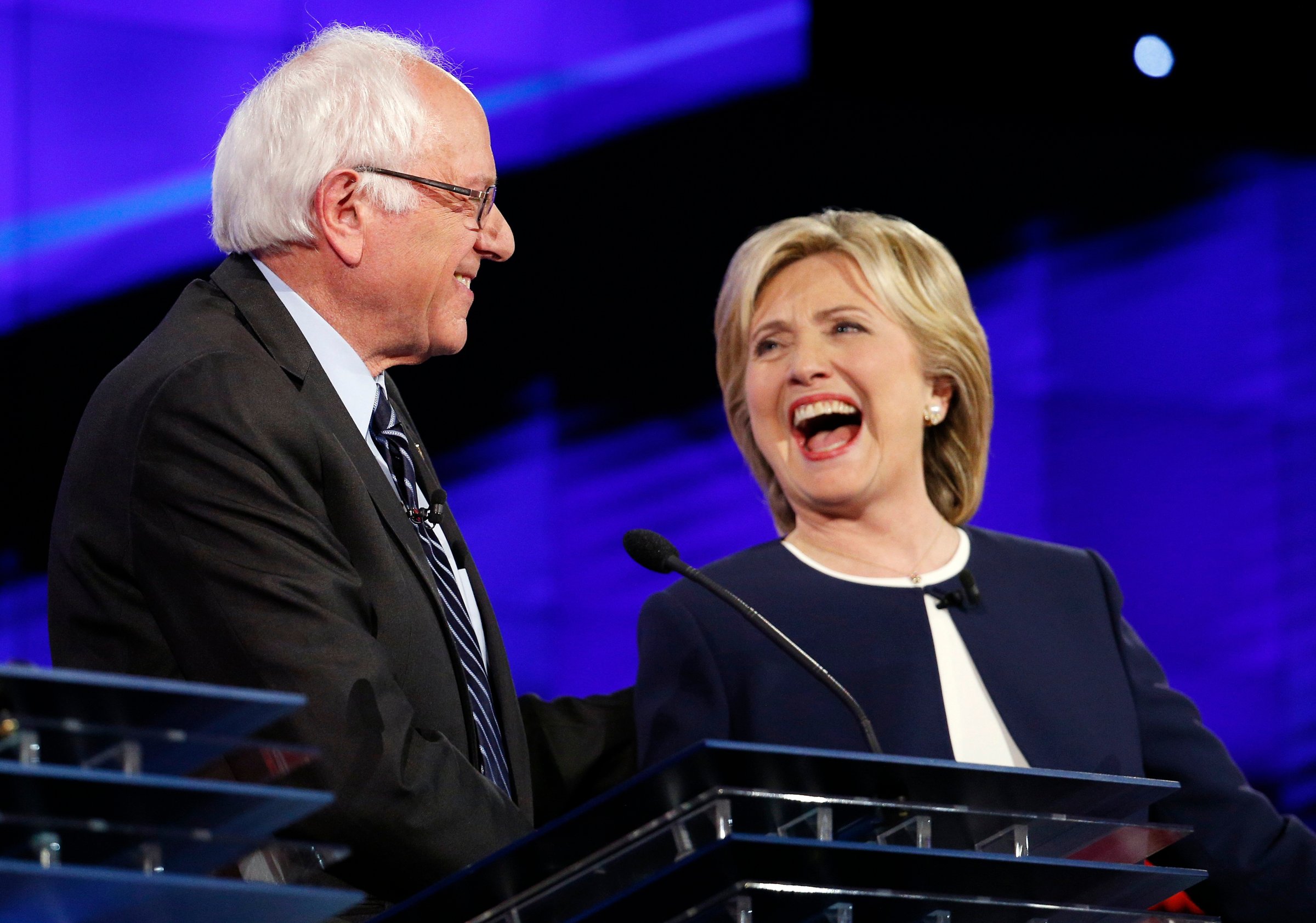
On Saturday Democratic candidates for president will take the debate stage for the second time. While we are likely to hear about hot button issues like emails, sexism and guns, we are unlikely to hear anything about the biggest hot button issue of all: God.
Why does it seem that the Democrats avoid talking about religion? Is it the special property of the Republicans? Absolutely not.
In our current political environment, it seems that the most common way to talk about faith is to invoke your God as a weapon of choice to demean and exclude someone’s values. The argument typically goes like this: “I believe in Jesus Christ therefore I am anti-choice. I am anti-gay. I am anti-Muslim. I am anti-immigrant. I am anti-red cups at Starbucks that don’t say Merry Christmas.”
This is a tragedy for the American voting public, and it’s a tragedy for Democrats to be silent in the face of it. Candidates of all parties should be able to talk about the deep moral and, if applicable, religious values that ground their political ideals. It is possible—indeed, it is right and good—to use a religious voice that on religious grounds is inclusive and open and embracing of multiple religious traditions and no religious tradition.
Though religion can be exclusive, it need not be. In fact, the very ideas of inclusion, democracy, and openness can be traced to deep faith commitments. Millions of liberal Christian, Jews, Catholics, Muslims, Buddhists and others know this to be true. They live open and inclusive lives and yearn for leadership that can express this kind of conviction.
This week also marks the 50th anniversary of Rabbi Abraham Joshua Heschel’s “No Religion is an Island” address at Union Theological Seminary. Heschel reminds us that the great religious questions happen to also be the great existential questions of life. What is the meaning of life? How do we find hope in the midst of suffering? How do we put our energies towards good and not evil?
I want to know whether my next president has grappled with the deepest existential questions that there are. Sadly, of our nation’s preeminent moderators and interviewers, only Stephen Colbert seems comfortable even approaching these questions. President Barack Obama gave us a taste of this level of dialogue in his interview of novelist Marilynne Robinson.
But any moderator could ask candidates policy-grounded versions of these questions. Questions like, what is your guiding framework for making moral and ethical choices? How do you think about diplomacy? Going to war? What is a just war? The driving values of capitalism? The value of human labor? Why should every single person have access to high-quality healthcare and education?
Democratic candidates have the capacity for a positive values-based conversation. Indeed, to raise the level of dialogue in our national politics and to appeal to a wider audience, candidates need to talk about their deepest convictions. I hope this next debate offers a chance to do exactly that.
More Must-Reads From TIME
- The 100 Most Influential People of 2024
- Coco Gauff Is Playing for Herself Now
- Scenes From Pro-Palestinian Encampments Across U.S. Universities
- 6 Compliments That Land Every Time
- If You're Dating Right Now , You're Brave: Column
- The AI That Could Heal a Divided Internet
- Fallout Is a Brilliant Model for the Future of Video Game Adaptations
- Want Weekly Recs on What to Watch, Read, and More? Sign Up for Worth Your Time
Write to Serene Jones at presoffice@uts.columbia.edu